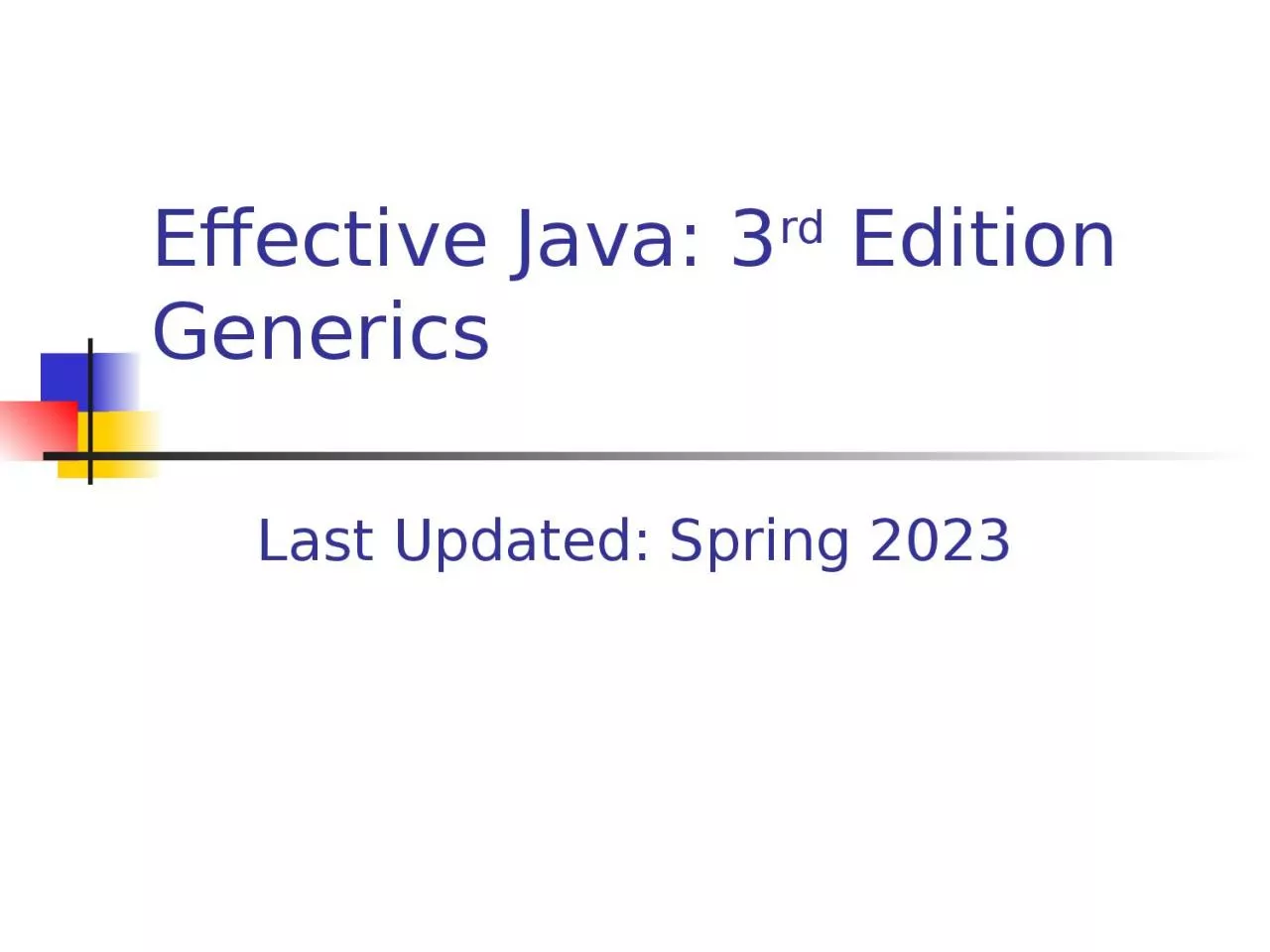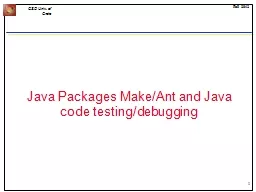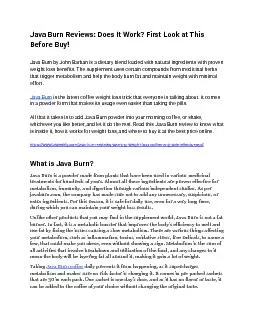PPT-Effective Java: 3 rd Edition
Author : sylvia | Published Date : 2022-06-28
Generics Last Updated Fall 2019 Agenda Material From Joshua Bloch Effective Java Programming Language Guide Cover Items 2631 33 Generics Chapter Bottom Line Generics
Presentation Embed Code
Download Presentation
Download Presentation The PPT/PDF document "Effective Java: 3 rd Edition" is the property of its rightful owner. Permission is granted to download and print the materials on this website for personal, non-commercial use only, and to display it on your personal computer provided you do not modify the materials and that you retain all copyright notices contained in the materials. By downloading content from our website, you accept the terms of this agreement.
Effective Java: 3 rd Edition: Transcript
Download Rules Of Document
"Effective Java: 3 rd Edition"The content belongs to its owner. You may download and print it for personal use, without modification, and keep all copyright notices. By downloading, you agree to these terms.
Related Documents







![[eBOOK]-java programming book.effective java coding problems for beginners and dummies](https://thumbs.docslides.com/973026/ebook-java-programming-book-effective-java-coding-problems-for-beginners-and-dummies-8th-edition-2021-2022-java-book-programming-java-for-beginners-java-a-beginner-s-guide.jpg)
![[FREE]-Java: This book includes: Java Basics for Beginners + Java Front End Programming](https://thumbs.docslides.com/973042/free-java-this-book-includes-java-basics-for-beginners-java-front-end-programming-java-back-end-programming.jpg)
![[DOWLOAD]-The Java Class Libraries: Java.Applet, Java.Awt, Java.Beans](https://thumbs.docslides.com/973154/dowload-the-java-class-libraries-java-applet-java-awt-java-beans.jpg)

![[READING BOOK]-Programmierung von verteilten Systemen und Webanwendungen mit Java EE:](https://thumbs.docslides.com/992922/reading-book-programmierung-von-verteilten-systemen-und-webanwendungen-mit-java-ee-erste-schritte-in-der-java-enterprise-edition-german-edition.jpg)
